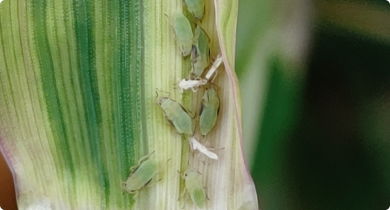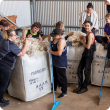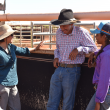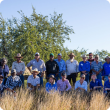Crops
The Department of Primary Industries and Regional Development continues to support the growth and international competitiveness of all crop industries in Western Australia.
With a 2400 kilometre span from its tropical north to its temperate south, WA supports a broad range of cropping industries from rain-fed winter cereals through to irrigated horticultural crops.
In the 2012/13 year the WA cropping industries exported a total of $3.9 billion which comprised: $3.1 billion of cereals, $859 million of pulses, pastures and oilseeds, $142 million of horticultural crops. The major contributors to these exports were wheat ($2.7 billion), canola ($756 million), barley ($377 million), lupins ($42 million), carrots at $48 million, oats ($12 million), and strawberries at $5.5 million.
Filter by search
Filter by topic
- (-) Remove Livestock & animals filter Livestock & animals
- Climate, land & water (46) Apply Climate, land & water filter
- Livestock management (39) Apply Livestock management filter
- Pastures (34) Apply Pastures filter
- Livestock species (30) Apply Livestock species filter
- Pests, weeds & diseases (18) Apply Pests, weeds & diseases filter
- Pasture management (18) Apply Pasture management filter
- Land use (16) Apply Land use filter
- Grains (15) Apply Grains filter
- Feeding & nutrition (14) Apply Feeding & nutrition filter
- Sheep (13) Apply Sheep filter
- Soils (12) Apply Soils filter
- Resource assessment (11) Apply Resource assessment filter
- Rangelands (11) Apply Rangelands filter
- Horticulture (10) Apply Horticulture filter
- Dairy cattle (9) Apply Dairy cattle filter
- Climate & weather (9) Apply Climate & weather filter
- Livestock research & development (7) Apply Livestock research & development filter
- Biosecurity & quarantine (7) Apply Biosecurity & quarantine filter
- Food, export & investment (6) Apply Food, export & investment filter
- Agribusiness Food & Trade (6) Apply Agribusiness Food & Trade filter
- Beef cattle (6) Apply Beef cattle filter
- Pasture species (5) Apply Pasture species filter
- Food & beverages (5) Apply Food & beverages filter
- Managing soils (4) Apply Managing soils filter
- Climate change (4) Apply Climate change filter
- Irrigated crops (3) Apply Irrigated crops filter
- Vegetables (3) Apply Vegetables filter
- Production & postharvest (3) Apply Production & postharvest filter
- Organic food & farming (3) Apply Organic food & farming filter
- Land use planning (3) Apply Land use planning filter
- Measuring and assessing soils (2) Apply Measuring and assessing soils filter
- Grapes & wine (2) Apply Grapes & wine filter
- Pests (2) Apply Pests filter
- Weeds (2) Apply Weeds filter
- Fruit (2) Apply Fruit filter
- Water erosion (2) Apply Water erosion filter
- Water (2) Apply Water filter
- Fire (2) Apply Fire filter
- Crop weeds (2) Apply Crop weeds filter
- Agricultural exports (2) Apply Agricultural exports filter
- Biosecurity (2) Apply Biosecurity filter
- Bees (2) Apply Bees filter
- Carbon farming (2) Apply Carbon farming filter
- Control methods (2) Apply Control methods filter
- Citrus (1) Apply Citrus filter
- Canola (1) Apply Canola filter
- Assessment for agricultural expansion (1) Apply Assessment for agricultural expansion filter
- Breeding & varieties (1) Apply Breeding & varieties filter












